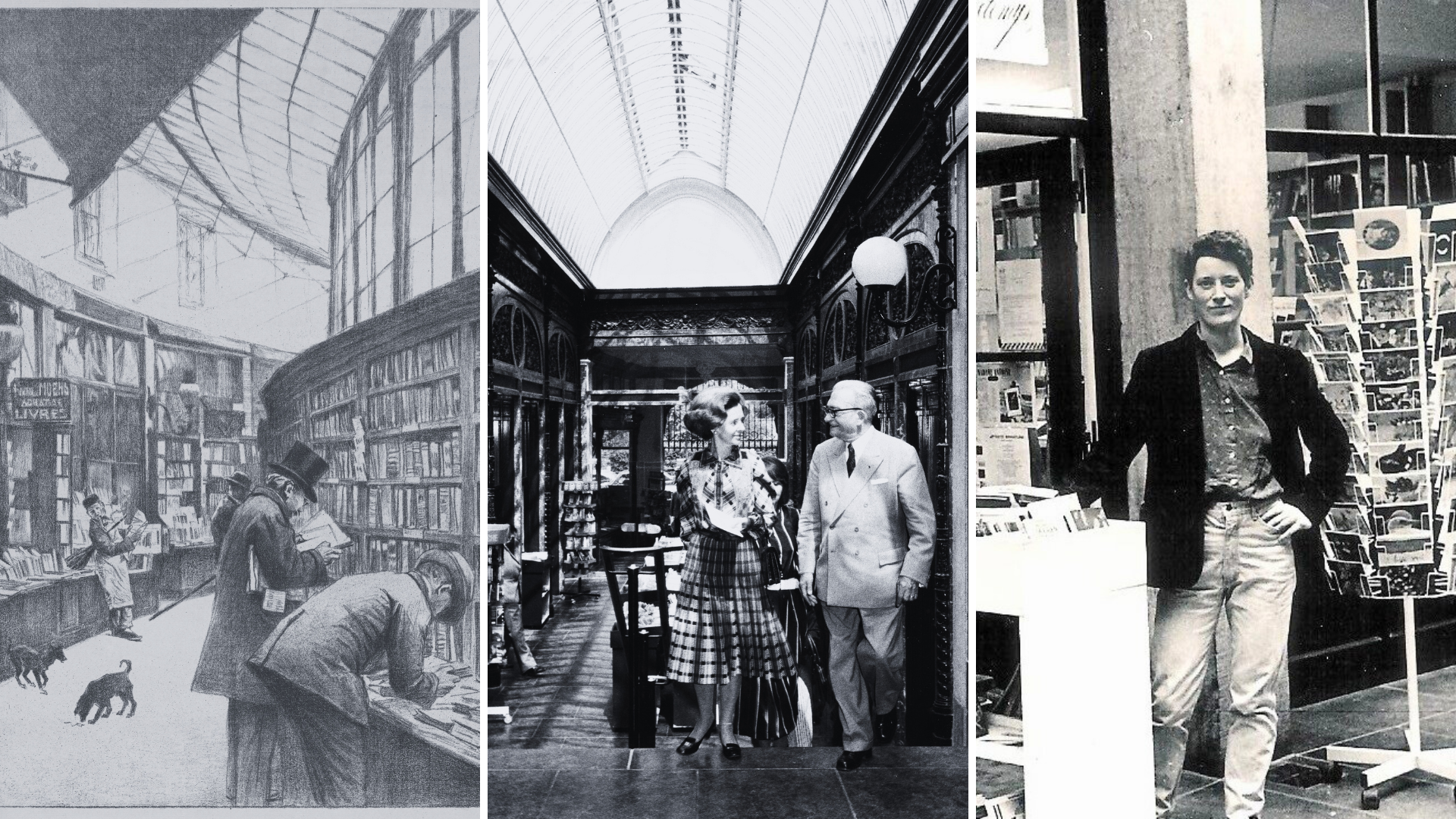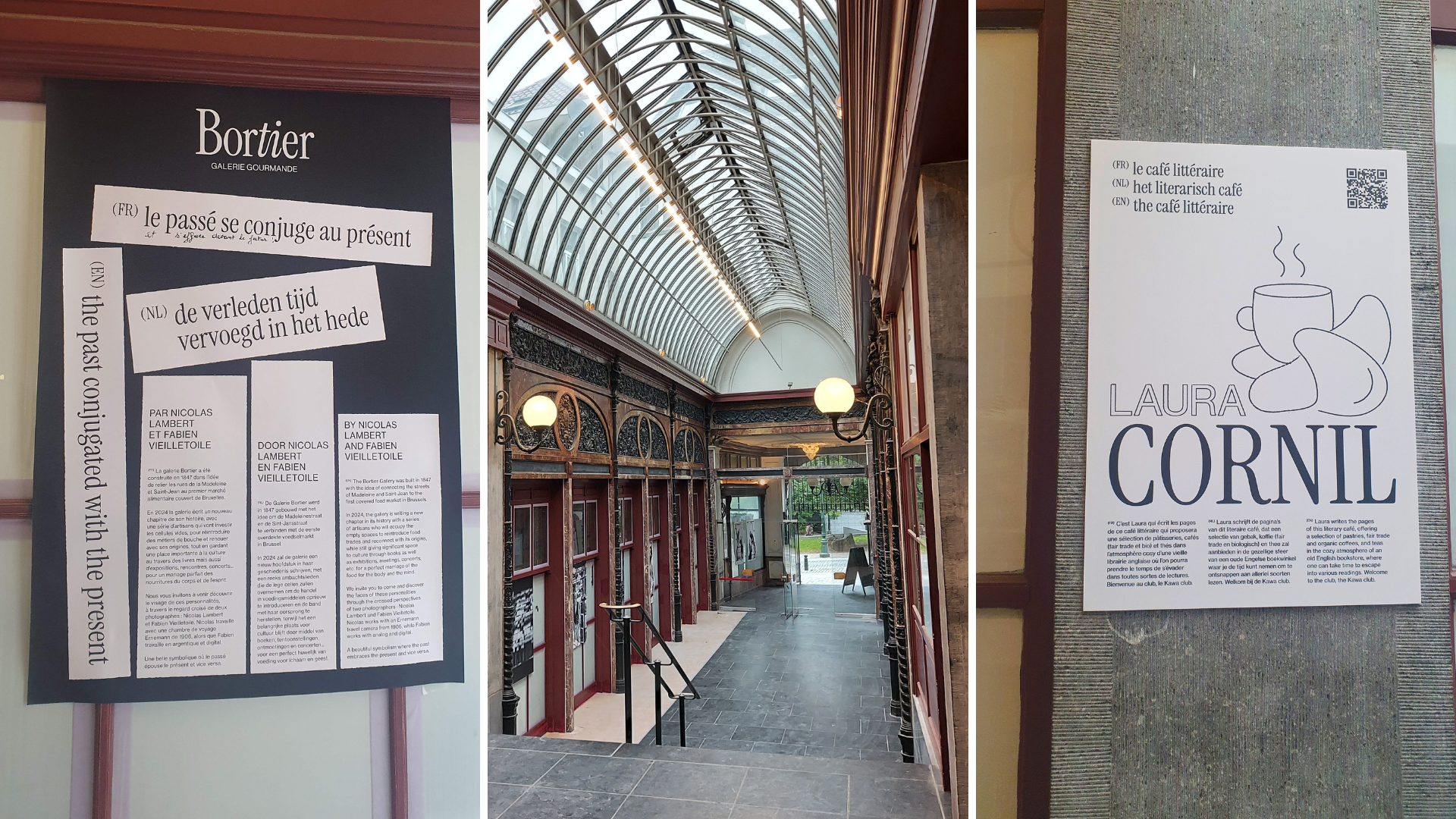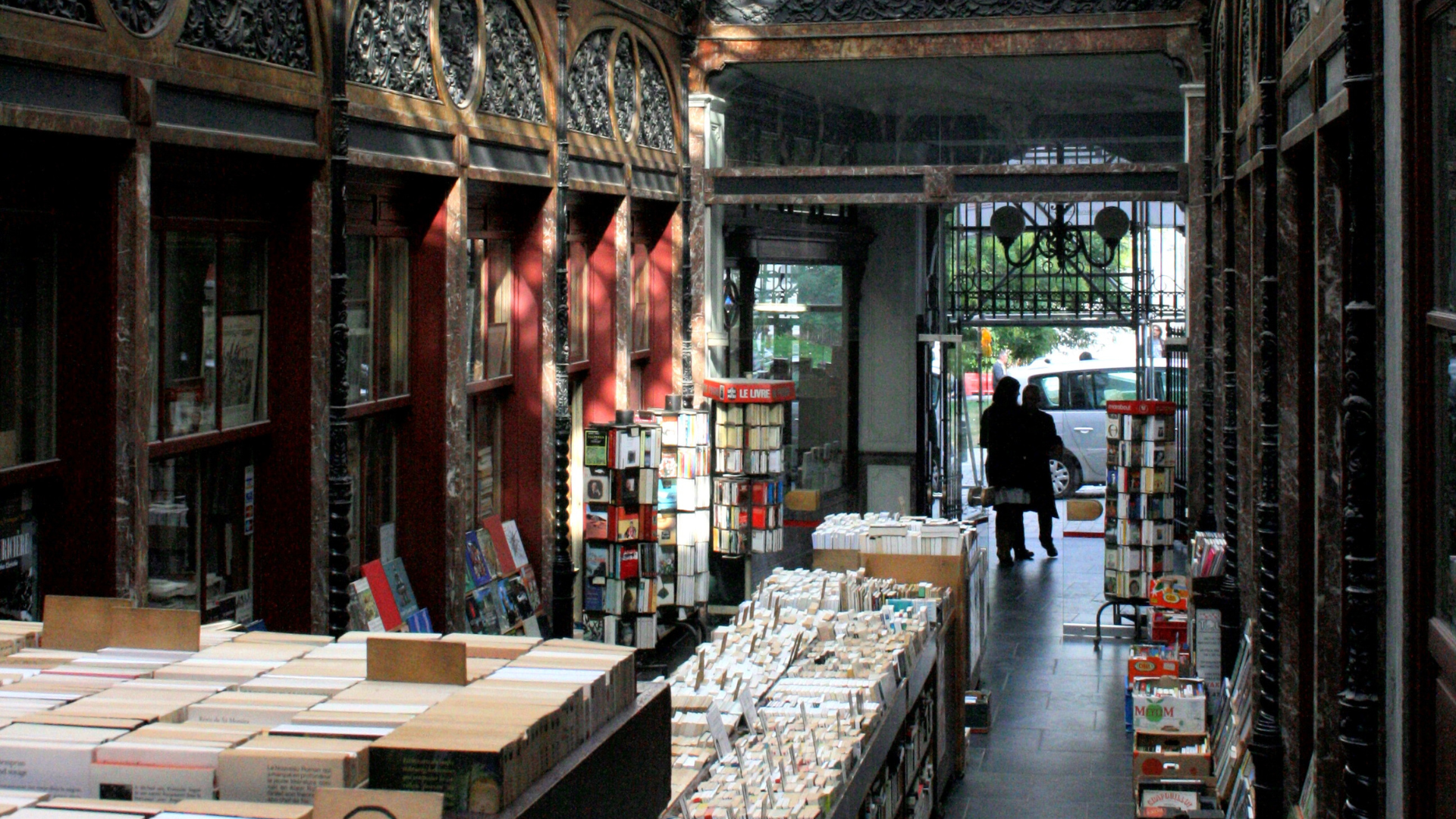The historic Galerie Bortier, a covered passage in the heart of Brussels, is undergoing a transformation led by the entrepreneurs behind the popular food markets Wolf and Fox. Long known as a cultural and intellectual hub, the gallery will be revitalised and opened at the end of October 2024.
Snaking through a block of buildings at the foot of Mont des Arts, Galerie Bortier is almost as old as Belgium itself. It was designed by Jean-Pierre Cluysenaar, the architect behind the Royal Saint-Hubert Galleries, and built in 1847 to link rue Madeleine and rue Saint-Jean to Brussels' first covered food market (now the La Madeleine concert hall).
Known for its quiet and intimate atmosphere, the Galerie Bortier has long been one Brussels' few remaining havens for 'bouquinistes'– specialists in second-hand or antiquarian books.
Throughout its history, the gallery has often been a hub for pioneering intellectual, cultural, and social movements. The father of philately (the study of stamps) Jean-Baptiste Moens established a shop in the Galerie Bortier in 1853, where he bought and sold new and second-hand books and stamps.
In 1987, Marian Lens – one of Brussels's most prominent and vocal LGBT figures since the 1980s – opened her shop Artemys. The shop was Brussels’ first and largest lesbian feminist bookshop, offering more than 10,000 titles on feminism, lesbianism and the history of women. It displayed work by female and lesbian artists such as Romaine Brooks and Frida Kahlo.

The Galerie Bortier throughout history. Bouquinistes in front of the Moens bookshop in 1919. Queen Fabiola at an exhibition in the Galerie Bortier in 1979. Marian Lens outside her lesbian and feminist bookshop Artemys in the 1980s. Credit: Wikimedia Commons/ Belga/ Marian Lens
A bygone era
The arrival of multinational retailers like Amazon have posed an existential challenge to independant bookstores. Artemys was forced to close its doors in 2002 and the gallery has gradually fallen into disuse since then.
The decline prompted Brussels' Régie Foncière – the governmental housing association that manages the property on behalf of the City of Brussels (which owns the site) – to begin searching for projects to revitalise the site.
In 2023, it was announced that Thierry Goor and Pascal van Hamme would be taking over the gallery. Regulars and booksellers were outraged by rumours that the beloved literary gem would be turned into a new food market (Goor and van Hamme are the creators of the popular food halls Fox and Wolf).
A petition was launched to protect the remaining bookshops but despite collecting over 11,000 signatures, the project is still going ahead. Work has already begun in the gallery, which is set to reopen in its new form at the end of October.
While three of the original small businesses – Pierre Coumans's rare books store, Fanny Genicot's second-hand bookshop and Nicolas Van Cutsem's antique store – have been included in the project, several of the gallery's original shops have been forced to shut.
Van Cutsem, the antique store owner, sees Galerie Bortier's fate as part of a broader trend, in which Brussels City no longer supports small businesses. One of the gallery's largest and most popular bookstores, La Bouquinerie, had been in conflict with the Régie for some time and closed its doors in March 2024.

Empty shops in the Galerie Bortier are currently being renovated, with signs advertising the gallery's rebranding. Credit: Belga/The Brussels Times
A vision for the future
The empty space will soon be filled by four new businesses: a fishmonger's, a butcher's, a brasserie and a wine shop. Goor shared his vision for gallery with SoSoir earlier this week, explaining the "aim to retain the original vocation of the site by opening a literary café in the centre of the gallery, which will be the backbone of the project."
In a nod to the gallery’s food-related past, Goor has invited big names from Brussels' culinary scene. With an emphasis on craftsmanship and quality, Dierendonck butcher, fromagerie Soeurs, a wine shop, and a florist will all set up shop, along with a new Filigranes bookstore.
Seven Brussels craft breweries – La Senne, Brussels Beer Project, Surréaliste, Jungle, La Mule, En Stoemelings and L'Ermitage– will together form a joint brasserie.
"Food businesses are disappearing in the centre of Brussels. We want to come up with something innovative, while still maintaining a literary spirit. Our motto will be: 'The culture of taste, the taste of culture'," explained Goor.
In anticipation of the reopening, Van Cutsem told The Brussels Times "My general feeling is one of curiosity. It could fail, it could work." Scouring for antiques in the morning and selling in the afternoon, Van Cutsem said his shop is now the only one of its kind in Brussels. He has been running his shop in the Galerie Bortier for almost 8 years.
While he is optimistic about increased foot traffic in the gallery, the antiques dealer is not convinced that the new visitors will be drawn to his store. His main concern is that large groups of tourists might enter without appreciating the value of his goods, and behave disrespectfully.
"My shop is a mess, yes, but an organised mess," Van Cutsem joked. Still, he is confident that his loyal customers will keep coming, regardless of what happens to the gallery. "At the end of the day I want what's best for the gallery."

